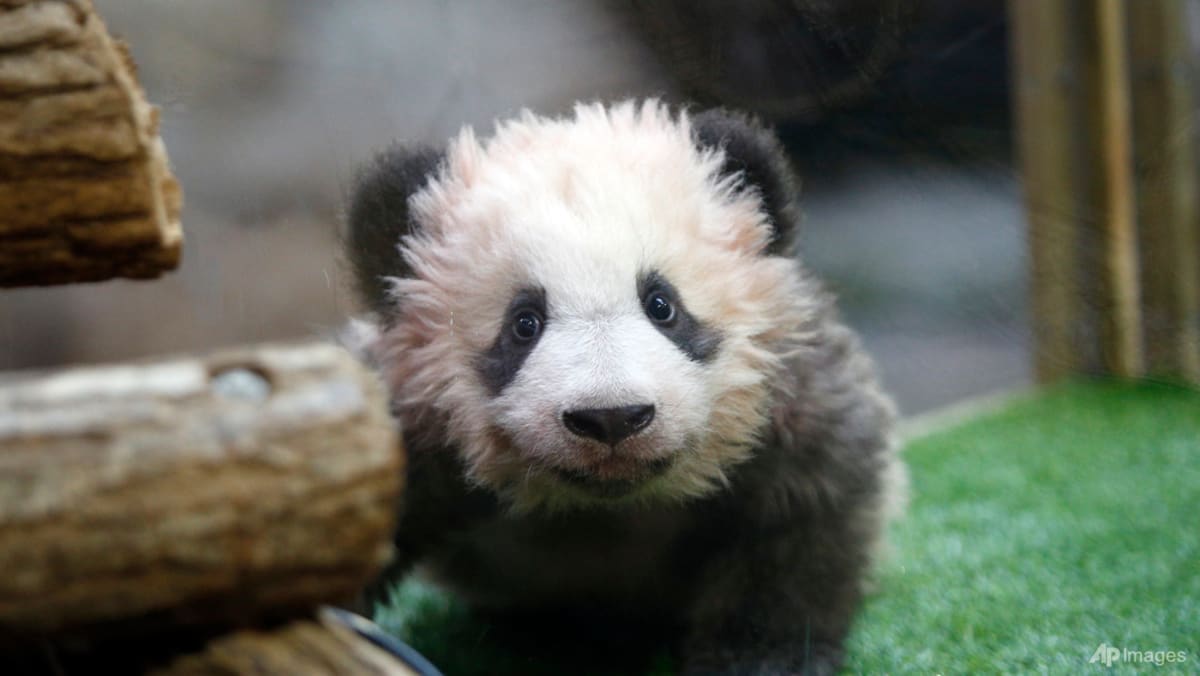Premier Doug Ford says Ontario will "do whatever it takes" to give the remaining 30 belugas at Marineland "the best life possible" as the Niagara Falls amusement park awaits word from Ottawa on whether it'll be allowed to export the whales.
Ford was speaking at a news conference Thursday on his plans to ban speed cameras when the issue of the possible exportation of the whales came up.
A federal official with knowledge of the situation previously confirmed to CBC News that the shuttered theme park applied to the government for export permits. Fisheries Minister Joanne Thompson said Tuesday that its decision would "speak to the health of the whales." The Department of Fisheries and Oceans (DFO) said Thursday that a decision has not yet been made.
The care and health of the whales has been a topic of heated debate for years.
Ford said the province continues to regularly inspect Marineland, which didn't open this season.
"They need to take care of these whales," the premier said. "I feel sorry for these whales.
"If we can find beautiful homes for them and the federal government approves it, give them a beautiful nice home — it's just terrible over there. My heart breaks for these poor whales. Man, they're captive. ... we'll do whatever it takes to make sure we give them the best life possible."
Nineteen belugas have died at Marineland since 2019 . The last orca, Kiska, died in 2023.
This year marked the first time in Marineland's 60-year history, outside of COVID-19 closures, that it didn't open, raising concerns about the future of the remaining animals.
Marineland, which has begun selling off some of its amusement rides, has not responded to multiple requests for comment.
Beluga whales swim in a tank at Marineland on June 9, 2023. Nineteen belugas have died there since 2019. The last orca died in 2023. (Chris Young/The Canadian Press)
The DFO also told CBC News that Thompson will meet with Ontario Solicitor General Michael Kerzner in the coming days to discuss the matter.
Kerzner, whose department oversees animal welfare, said inspectors have visited the park regularly over the last five years and are keeping a close eye on the animals.
He said federal legislation "allows for them to consent to the export permits. I want to make sure that they don't delay."
Ford also said he had heard that it costs a million dollars a month to feed the animals and "eventually, the money is going to run out."
Ontario's Green leader urges quick action
In the meantime, Ontario Green Party Leader Mike Schreiner is urging Ford to work with Marineland, marine mammal experts and Ottawa "to create an action plan for the health and safety of the remaining whales" at the amusement park.
WATCH | Drone footage shows Marineland staff caring for whales: Drone footage shows Marineland staff caring for remaining belugas, dolphins Duration 0:42 Staff members at Marineland were seen in late July feeding, petting and interacting with the belugas and dolphins that remain at the now-closed theme park in Niagara Falls, Ont.
"Marineland clearly does not have the resources to care for these animals, and further delaying a decision on next steps amounts to continued neglect and abuse," Schreiner, MPP for Guelph, said in a release Thursday.
"We need to work collaboratively to identify next steps that are in the best interest of the whales, and that means ensuring that they aren't put back in a situation where they will be exploited for entertainment once again.
"They should be relocated to a safe and suitable marine sanctuary that can help facilitate this process and ensure the well-being of the whales."
Theme park in China considering buying whales
Chimelong Ocean Kingdom, which is in Zhuhai, China, and is one of the world's largest marine theme parks, told CBC News that it was considering purchasing the whales.
Some animal rights advocates have been calling for the remaining whales and dolphins to be sent to a seaside sanctuary. There's no such facility in North America, although there have been efforts in Nova Scotia to build North America's first coastal refuge for captive whales.
Andrew Trites, director of the Marine Mammal Research Unit at the University of British Columbia, earlier told CBC News that the health of the whales would be a key factor in determining whether they could travel.
"There would be assessments done both with blood work, looking at feeding records to make sure the animal's been feeding consistently, any signs that the animal might be off for any reason."
[SRC] https://www.cbc.ca/news/canada/hamilton/marineland-export-whales-permits-doug-ford-ontario-responds-1.7643549
 Visit the website
Visit the website

